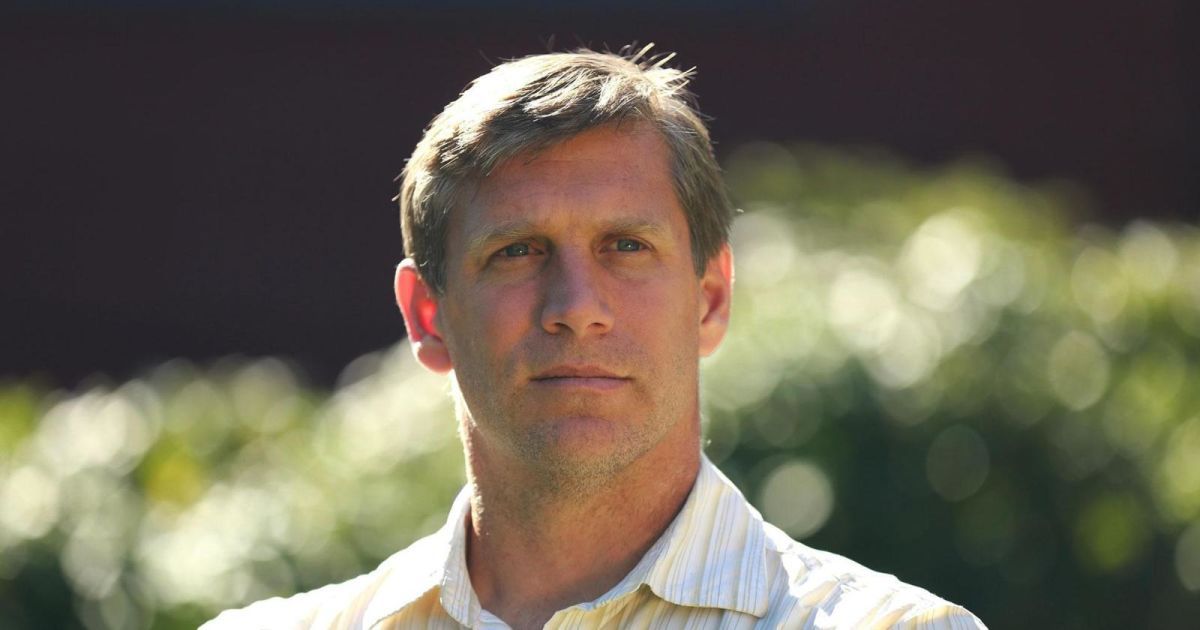Silicon Valley engineers and financiers make up the lion’s share of the movement.



A new story out on Engadget, emphasizing the need to make government treat science and technology as a primary focus:
Zoltan Istvan didn’t have much of a chance at being president, but that didn’t stop him from campaigning as the Transhumanist Party’s candidate to promote his pro-technology and science positions. Now, he’s setting his sights a bit lower, and with a different party. Istvan announced this morning that he plans to run for governor of California in 2018 under the Libertarian Party.
“We need leadership that is willing to use radical science, technology, and innovation—what California is famous for—to benefit us all,” he wrote in a Newsweek article. “We need someone with the nerve to risk the tremendous possibilities to save the environment through bioengineering, to end cancer by seeking a vaccine or a gene-editing solution for it, to embrace startups that will take California from the world’s 7th largest economy to maybe even the largest economy—bigger than the rest of America altogether.”
When we spoke to him in November, Istvan made it clear that he would be looking at the Libertarian Party if he were to run for president again. Not only does he identify as libertarian, he also saw the benefit of working with a more established political party, instead of starting one from the ground up.
“The most important thing I learned from my presidential campaign is that this is a team sport,” Istvan said in an email. “Without the proper managers, volunteers, spokespeople, and supporters, it’s really impossible to make a dent in an election. That’s part of the reason I joined the Libertarian Party for my governor run. They have tens of thousands of active supporters in California alone, so my election begins with real resources and infrastructure to draw upon. That’s a large difference from my Presidential campaign, where we essentially were shoe-stringing it the whole time.”
Posthumanists and perhaps especially transhumanists tend to downplay the value conflicts that are likely to emerge in the wake of a rapidly changing technoscientific landscape. What follows are six questions and scenarios that are designed to focus thinking by drawing together several tendencies that are not normally related to each other but which nevertheless provide the basis for future value conflicts.

The French Polynesian government, earlier this year, officially signed an agreement with The Seasteading Institute to cooperate on creating legal framework to allow for the development of The Floating Island Project. The legislation will give the Floating Island Project it’s own “special governing framework” creating an “innovative special economic zone”.

Yes, you read that right. The Global Challenges Foundation, founded by the Swedish billionaire László Szombatfalvy, has launched an international competition in order to find a better system for world governance. As Szombatfalvy writes in a letter published on the Foundation’s website:
The greatest threats we face today transcend national boundaries; they therefore need to be addressed jointly by all countries based on an increased realization of our mutual dependence. […] Our current international system – including but not limited to the United Nations — was set up in another era following the Second World War. It is no longer fit for purpose to deal with 21st century risks that can affect people anywhere in the world. We urgently need fresh new thinking in order to address the scale and gravity of today’s global challenges, which have outgrown the present system’s ability to handle them.
The Global Challenges Prize 2017: A New Shape is calling on individuals, groups of individuals, universities, companies or associations from anywhere in the world to submit proposals outlining an alternative world governance model – either by revising the present UN system, or by proposing completely new forms of governance. The new model should be able to effectively address some of the most pressing global problems (like climate change, population growth, extreme poverty) by making it possible for nations to make collectively binding, long-term decisions that take into account the interests of all those affected, including future generations.


Developments in computing are driving the transformation of entire systems of production, management, and governance. In this interview Justine Cassell, Associate Dean, Technology, Strategy and Impact, at the School of Computer Science, Carnegie Mellon University, and co-chair of the Global Future Council on Computing, says we must ensure that these developments benefit all society, not just the wealthy or those participating in the “new economy”.
Why should the world care about the future of computing?
Today computers are in virtually everything we touch, all day long. We still have an image of computers as being rectangular objects either on a desk, or these days in our pockets; but computers are in our cars, they’re in our thermostats, they’re in our refrigerators. In fact, increasingly computers are no longer objects at all, but they suffuse fabric and virtually every other material. Because of that, we really do need to care about what the future of computing holds because it is going to impact our lives all day long.
” … discuss using drones to leapfrog infrastructure, and save lives by doing it in less than 15 minutes.”

The Estonian ministry of economic affairs and Startup Estonia have been selected to host the Startup Nations Summit in 2017; the event, organised annually by the Global Entrepreneurship Network, will continue to explore the rapidly-growing European startup hubs.
The key aim of the summit in 2017 is to explore how digital disruption is changing the world. It is an entrepreneurial highlight during the Estonian presidency of the EU Council, bringing together policymakers and entrepreneurs into a single eventful conference.
“Estonia is among the most forward-thinking governments in the world and we are happy to share our experiences in digital governance,” Liisa Oviir, the minister for entrepreneurship, said. “We are ready to immerse all policymakers in how digital technologies have made a huge difference for entrepreneurs in Estonia. We call startups to expect more from their governments, so they can start and scale faster.”

Tune in tomorrow (Thursday, Nov 10, 2016) at 4:30PM Eastern. Find out what Edward Snowden has to say on the future of the US. [Source: StartPage via Engadget]
American technology policies could change significantly under Donald Trump, and that includes its stance on privacy. How will the new leader alter government surveillance, for example? Edward Snowden might have an answer. The whistleblower and Dutch search engine StartPage are hosting a live event on November 10th at 4:30PM Eastern to address what happens to privacy in the Trump era, among other questions. Snowden speaking engagements are nothing new, but this is special — he’s more than a little familiar with government spying activities, and this is his first chance to opine on how things might be different under a new administration.
Snowden hasn’t said much of anything about the subject as of this writing. However, Trump doesn’t exactly have a stellar record on internet privacy so far. He has proposed reauthorizing the Patriot Act and the previous, less restrained NSA mass surveillance that took place while the Act was in force. He tends to “err on the side of security” over privacy, even if he’s not especially fond of it. As such, Snowden probably won’t have many kind things to say. He’s in favor of more privacy wherever possible, and that could easily put him at greater odds with the US government than he is now.